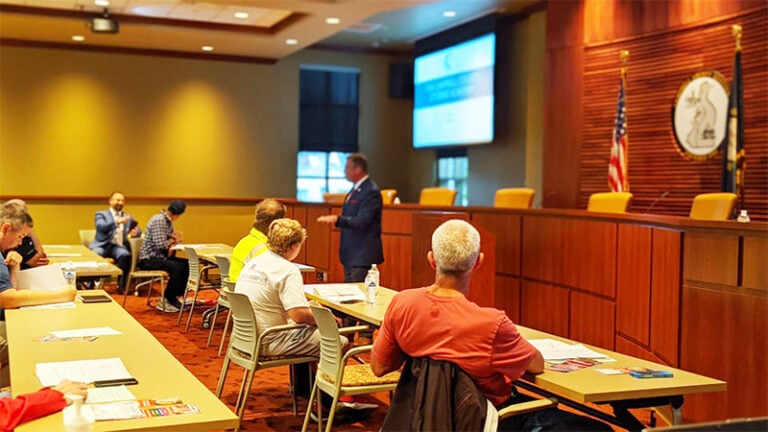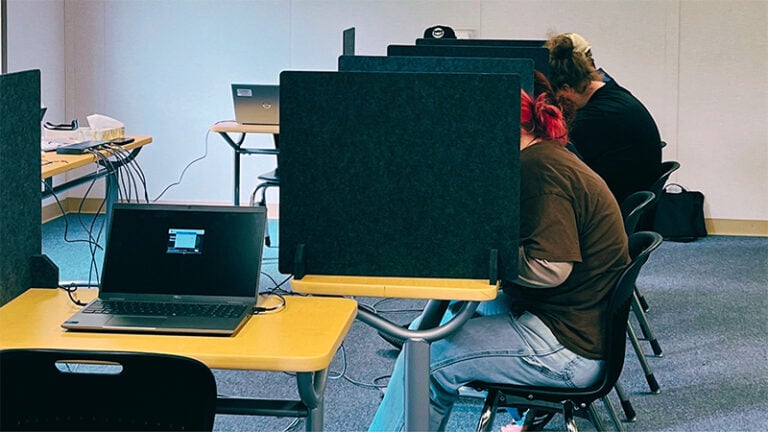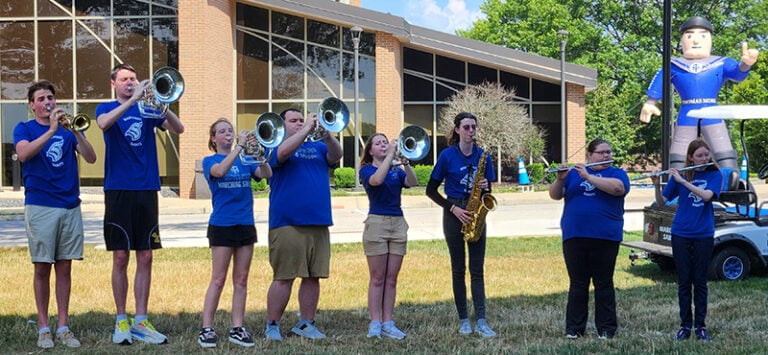Medical malpractice lawsuits can now be filed in Kentucky at any time. But under a bill passed narrowly Wednesday by the Kentucky House, peer review of malpractice cases would be required before they could go to court.
“Medical review panels” proposed under Senate Bill 4, sponsored by Sen. Ralph Alvarado, R-Winchester, would be required to review any malpractice complaint against a health provider before a case based on that complaint could be filed in court.
Rep. Robert Benvenuti, R-Lexington, said SB 4 “provides a balanced, unbiased and thoughtful approach for both patients and health care providers” when he presented the bill to the House today.

SB 4, which passed the House 51-45, would provide mediation on the “front end” of the medical malpractice process to expedite the process and balance it out, Benvenuti said.
The current medical malpractice process “is not a fast process,” Benvenuti said. “It drags on for years and years and years. (And) it ends by the judge encouraging, or sometimes ordering, mediation. And both sides get more of an understanding of their case.”
Each review panel created under SB 4 would be made up of an attorney chairperson and three Kentucky health care providers licensed in the medical specialty in question. The panel would issue an opinion that includes one of three outcomes—that failure to meet appropriate standards of care was a “substantial factor” in the patient outcome, failure to meet those standards was not a substantial factor in the patient outcome, or that evidence doesn’t show a failure to meet appropriate standards.
That opinion could then be used as evidence in court.
Only by agreement of all parties could a case bypass a medical review panel and go directly to court, the bill states.
Among those speaking against the bill was Rep. Alan Gentry, D-Louisville, who told the House that he has spent a lot of time researching the issue of medical review panels.
“After all my research,” he said, “I did one thing: I took that pile of research and I threw it straight in the trash. Why? Because I came to the simple logical conclusion. We already have a panel. It’s called a jury. A jury made up of the people from all walks of life—the foundation of our American judicial system. We don’t need a second panel.”
SB 4 now returns to the Senate for final passage.
Nuclear power bill approved by Senate
A bill that would lift a moratorium on nuclear power plants in the state was approved Wednesday by the Kentucky Senate.
Senate Bill 11 would amend statutes to change the requirement that facilities have means of permanent disposal of nuclear waste. Instead they would only be required to have a plan for its safe storage, and that the plans be approved by the Nuclear Regulatory Commission.
It would also eliminate several other obstacles to the construction and maintenance of nuclear facilities.
Sen. Danny Carroll, the sponsor of SB 11, said states need diverse energy portfolios to remain economically competitive.
“… U.S. energy demand will rise 22 percent by the year 2040 even with modest economic growth,” said Carroll, R-Paducah. “That means the United States will need many new power plants of all types to meet the increased demand and replace older facilities that are retired. To ensure a diverse portfolio, many of these new power plants will have to be nuclear.”
There are currently about 100 nuclear reactors across 30 different U.S. states, Carroll said.
“As it stands right now, approximately 20 percent of the power supply in the United States is supplied by nuclear energy,” Carroll said. “It is an excellent source of baseload energy.”
Carroll said nuclear plants provide good-paying jobs and have long-reaching economic impacts in areas where they are located. He noted that businesses and industries sometimes look at a state’s energy policy before deciding where to expand. “They look at whether a state depends entirely on fossil fuels, do they promote green energy, do they have nuclear as an option?”
Even if SB 11 becomes law, it’s unlike that a nuclear plant will be built quickly in Kentucky, Carroll said.
“However, energy policy must be planned decades if not centuries into the future,” he said. “I think it’s very important that we look … at what the future holds for us and make sure that we make decisions that will serve us well.”
Senate Bill 11 was approved on a 27-8 vote and now goes the House of Representatives for consideration.
Senate approves bill to give foster kids ‘educational stability’
A child placed in foster care wouldn’t have to switch schools, even if the foster home is outside the child’s school district, under a bill that passed the Kentucky Senate.
Senate Bill 190 is aimed at providing education stability for children at a time when their lives are already disrupted.
“This bill would allow a foster child to remain in their home school even though the state chose to move them to another home or another family,” said Sen. Dan Seum, the sponsor of SB 190. “Currently these children are being disrupted as it is and (the bill) merely tries to put some stability in that child’s life.”
The legislation states that a child going into foster care should, if practicable, be placed in a home in the school district where the child is already enrolled. If that’s not possible, then transportation should be provided so that the child can continue attending the school he or she is used to.
If it’s determined that it’s in the child’s best interest to switch schools, the new school should accept the child without delay, even if all of the kid’s records aren’t available right away, according to the bill.
“The new school will immediately enroll them so they’re not sitting out for 10, 15, 30 days waiting for their records to show up,” said Seum, R-Fairdale.
Members of the Senate approved SB 190 on a 35-0 vote. The bill now goes to the House of Representative for consideration.
From LRC Public Information

















